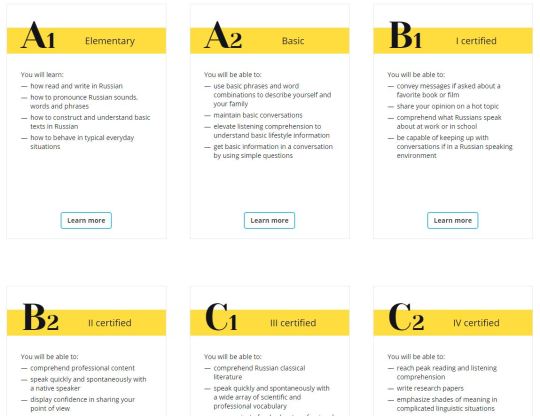i'm ruby, 20, and from scotland. just finished my second year at uni studying french, german, and russian. 2018-19: studying in russia.
Don't wanna be here? Send us removal request.
Text
me: *makes slight progress in target language*

13K notes
·
View notes
Photo

Delmore Schwartz’ copy of ‘Finnegans Wake’ by James Joyce, Viking Press, New York, NY, 1939, p. 17 [Delmore Schwartz papers, YCAL MSS 334, Yale University Library, Beinecke Rare Book and Manuscript Library, New Haven, CT]
407 notes
·
View notes
Text
Das Alles ist für Improving Your German
*Diese Liste wird ständig ergänzt.
Masterposts:
baernat
Grammatik:
DUDEN
Grammatik Im Überblick
German in Review
Pons
Studienbuch Linguistik
Filme und Fernseher:
NETFLIX
Heimatfilme
Videos und Artikel:
Berlin Stadt-Website
Deutsche Welle
Spiegel Online
Tagesspiegel
GermanyUSAcom
Deutschlernerblog
Literatur:
Buchvorschläge von Bücher Keks
Wiki: Deutschsprachige Lit
Websites:
italki
Schüler-Magazin
Goethe Institut
BMUB
BMEL
1K notes
·
View notes
Text
Courses in Russian online
Hi, babes.
A couple of days ago I found the official site of Pushkin Institute and it’s awesome. It is translated into several languages, e.g. English, Chinese, German, Spanish and others.
There are Russian courses for students of any level.

There are also lots of courses in Russian, for example, a course on cooking the Russian way, modern Russian art, Old Church Slavonic course and many other topics. Unfortunately, I don’t think there are subtitles for these courses and the courses themselves are in Russian, so I’d recommend them to people with B1+.
And here you can take a test to assess your level of fluency.
There’s also a site for children here. It has very simple materials so it might be suitable for A1-A2 levels. Here are words by themes and here is a little video on verbs of motion and here - on types of verbs.
3K notes
·
View notes
Text

op i wish only the most wonderful things in your life.
167K notes
·
View notes
Photo

self-curated playlists that i personally use to study, all are really long and meant to played on shuffle:
upbeat soft pop to keep you motivated during the day
mellow songs for studying at night
a collection of dreamy instrumentals
your favorite pop songs as calming piano instrumentals
beautiful ballet scores
check out my other playlists on my spotify!
1K notes
·
View notes
Text
ok but imagine if scotland just ,,,,,,,,, declared independence whilst westminister is closed. like what they gonna do? reopen parliament? checkmate losers.
21K notes
·
View notes
Text


Time till departure is decreasing! I rearranged the stickers on my laptop for a fresh look! I’m starting to get so exciting about going back to school. Packing is kinda a pain in the butt though. Hope everyone starting school this year has a wonderful start!
3K notes
·
View notes
Note
Sorry to bother you, I have a quick question! When I say «молодец» meaning good job, is that for both male and female or there’s a female version of it? Thank you )
Hi! You don’t bother me, I love questions! Молодец is one of those words that are of the so called general gender, i.e. they can be both masculine and feminine. Other general gender words are: умница, ябеда, сирота, сластёна, соня, трудяга, работяга etc. Many linguists consider words for professions that are technically masculine, general gender, too: хороший врач and хорошая врач, новый профессор and новая профессор, справедливый судья and справедливая судья and so on.
34 notes
·
View notes
Text

lazy study tips
1. use quizlet. quizlet is amazing because you can access your flashcards on your phone!! this way you can easily flip through them while waiting in line, watching tv, etc.
2. use the pomodoro technique. if you’re lazy like i am, sitting down for 6+ hours a day to study can be daunting. giving yourself multiple breaks throughout a study session will help to keep you going!
3. watch youtube videos. watching videos or listening to podcasts on the topic you’re studying could be a huge time saver and is a lot more interesting than flipping through a textbook. and you can easily do this in bed!! (i would not advise to do this instead of using a textbook all together just in case information is left out of the video)
4. try to build a steady study routine. block out a chunk of time in the middle of the day every day for studying. this way, you know that when the time is up, you have the rest of the day to relax!
5. get sleep. i’ve found that i’m at my laziest when i haven’t been sleeping much. avoid being sluggish throughout the day and get some rest! this will cut back on nap/rest time and increase productivity during the day.
6. consider the consequences of not studying. which will benefit you more in the long run- getting your work done now, or watching another episode?
7. reward yourself. give yourself a little treat (a piece of candy, etc.) after completing a set amount of work. this will keep you motivated to keep studying!
8. just start. the hardest part of studying is starting- force yourself to sit down and open up your notes.
as always, thanks for reading! x
11K notes
·
View notes
Text
a list of my favorite study tips (and when to use them)
summer:
invest in a book of short stories for each language you’re studying, and keep the book(s) on your bedside table. take advantage of the free time while out of school to get in the habit of reading through the short stories whenever you can. just a few minutes of reading the short stories every day will immensely improve your foreign language skills and keep you from forgetting the vocab & grammar over summer break
acquire a list of the books you’ll be reading for school in the fall and start reading them. to get the list of books, try asking someone who’s already taken the class, your future teachers, or a school counselor. reading the books ahead of time will not only put you ahead of the rest of your class by giving you time to work through the material in advance; it will also significantly lessen your workload during the school year.
this applies to the school year as well, but especially when you’re reading books in advance, keep a journal and pen at hand every time you read. write down the major plot points of the section you’re reading, what you like/agree with, what you dislike/disagree with, and one or two quotes that summarize the main themes of the section (make sure you include page numbers!!!!). when school starts & you’re assigned an essay on that book, you’ll already have the main points of the book laid out, and lots of great quotes—with page references!—to use in your essay.
two weeks before school starts:
take a look at your syllabus and get started on your first assignments. if you start now, you can stay at least one week ahead on all of your assignments throughout the year. this is a HUGE lifesaver when something comes up unexpectedly during the school year—like getting sick or having to go out of town for a few days at the last minute—and you don’t have time to get homework done, because if you’ve done it in advance then you won’t have to worry about falling behind.
get a planner app for your phone. i like egenda, but you can use any app where you input homework assignments in advance and it alerts you at various intervals of time before they’re due. it’s impossible to get a good grade on an assignment if you forget to turn it in on time, so just alleviate that issue altogether.
throughout the school year:
take notes. have a notebook open in every class, and write down all important names, dates, quotes, formulas, and theorems. write the current date at the top of each page, and have a separate notebook for each subject. if a teacher repeats something more than once in a class, underline it, because those are the things that appear on midterms and finals.
help yourself memorize things by writing essays about them. even if you’re not assigned an essay about a topic, try to write/type two or three paragraphs every week to summarize what you’re learning in a class. writing things in your own words is one of the best ways to remember them, and it will also help you to improve your writing skills. additionally, this should be applied to all subjects, not just literature or history (because even if you’re studying a STEM field and writing isn’t a huge part of the curriculum, you should still have the ability to write about STEM concepts in a way that is understandable and engaging).
befriend the smartest person in the class. figure out who always has the right answers and make yourself their ally. be a good friend to them, and then when you’re struggling with a concept, they will either explain it to you or—if they don’t know what the explanation is yet—they’ll help you search for it.
take advantage of indexes. almost all books have one, and they can be lifesavers if you don’t know the answer to a question. especially in history class, when there are a bunch of names that are super difficult to memorize. i know this is a pretty basic tip (if you can even call it a tip), but i’ve had a lot of friends completely forget about indexes, so this is just a brief reminder. :)
participate in class. this might sound super obvious, but you cannot retain information without discussing it! if you’re like me and participating in class sucks because of social anxiety, try to force yourself out of your comfort zone & remember that you are your own worst critic, but it’s also okay just to discuss things with a close friend or family member instead. the important thing is that you’re repeating what you’ve learned out loud and practicing explaining it to someone else, which will really help you to grasp the concepts.
three weeks before midterms/finals:
now is when all of your notes come in handy. go back through the notes for each class and study them, particularly the parts you’ve underlined. you shouldn’t try to memorize the pages, but you should study them enough that—by finals week—you could summarize the contents if someone asked you pointed questions about them. this is also when it becomes extra helpful to be friends with the smartest person in the class, because they will be an excellent study buddy. just make sure that you reciprocate if you ask them to help you study.
fill in any gaps in your notes by talking to your teachers and attending all of the office hours that you can. many teachers will give you a study guide if you ask for one, and you can literally go through and fill it in with info from your notes. remember, most of your teachers really do want you to do well, and they’ll try their best to help you achieve the best scores possible.
if any of your quizzes are open book, ask your teacher if you can put completely blank sticky notes on pages. bookmark the pages that have important events, quotes, facts, etc., and then if you forget something on a test you can refer to the book & it will be much easier to find the information. personally, the only open book finals i’ve had are the kind where you just write three 1000 word essays in 3 hours, but we are required to have at least 5 quotes in each essay, so if that’s the case for any of you guys then this tip is super helpful for bookmarking those quotes as well.
while taking a final/midterm:
read through the whole test first. figure out how long it is, how much time you have, and how many points each question is worth. if you’re worried about running out of time, start by doing the problems that are worth more points, and then out of whatever’s left do the ones that look easiest first. this will guarantee that you make the best use of your time & get the highest grade possible
and that’s all i can think of right now! hope this can help at least a few people :)
6K notes
·
View notes
Photo

One of the oldest buildings in Hattfjelldal municipality in Nordland, Norway.
43K notes
·
View notes
Photo


Nice visualization of relationships in crises. I let you to translate image captions, but here are a few idioms from there:
Idioms about relations
Сглаживать углы - lit. smooth corners, to smooth things over. Ты всегда сглаживаешь углы - You always smooth things over!
Вращаться в разных кругах - lit. to spin in different circles, hang out in different social circles. Мы вращаемся в разных кругах - we run in different social circles.
Не подходить - lit. to be not suited for somebody; to be no good for somebody. Я тебе не подхожу - I am not good for you.
Идти навстречу - lit. to move toward somebody, to meet it halfway, to cooperate, to do a favor. Ты не идёшь навстречу мне - You are not helping me, you are not cooperating with me.
74 notes
·
View notes
Note
Hello, can you recommend a few modern Russian novels for a high intermediate learner? I would like to read more in Russian, but am unsure on which books to go for. Thank you!
Hi! Sure I’d be happy to recommend a few. I tried to link files to epub (for most e-readers) / mobi (Kindle) if I could find them.
Часовой ключ - Наталья Щерба: The is a YA fantasy novel that is a part of the Часодеи series. The language here is easier than the other books on this list.
Чужак -Макс Фрай:This YA fantasy series of Лабиринты Ехо was recommended by one of my followers and I love it. It is quite long compared to the other books here, but I am so engrossed in the story that it doesn’t feel like 600+ pages.
Ночной Дозор - СергейЛукьяненко: This is a fantasy supernatural book that has been turned into the movie Night Watch.
Понедельник начинается в субботу- Аркадий и Борис Стругацкие: You have to read the Strugatsky Brothers. They greatly influenced the sci-fi genre with their books.
Пелагия и белый бульдог - Борис Акунин: This is one of Akunin’s successful detective novels.
Сонечка - Людмила Улицкая: I like reading Ulitskaya’s novels and this one is a good introduction.
Омон Ра- Виктор Пелевин: Pelevin is one of my favorite modern authors that I can’t really put into one genre. While his writing style isn’t difficult, you may often be lost by the plot or references in his books.
Смерть постороннего - Андрей Курков: This is a dark humor novel by Ukrainian author Andrei Kurkov. It is also available in English.
Компромисс - Сергей Довлатов: Dovlatov was a Soviet absurdist author and this is a good intro to his work.
Лёд - Владимир Сорокин
If you don’t want to buy them, I suggest downloading them to an e-reader or your phone with an e-reader app and using a dictionary app to look up any words you don’t know. I personally like Lingvo Live as it can save your words.
234 notes
·
View notes
Text
Russian Case Chart with Examples
The Only Russian Case Chart You’ll Ever Need
Hey, guys! I’ve posted several Russian case charts in the past that I’ve found online, but none of them have been quite perfect. The last few days, I’ve been working on one of my own, with examples of all the different rules (and their exceptions).
It is too large to post a single picture that fits it all, so I broke it down by case. (They look blurry while scrolling, but if you click on them they’re high-def.)
Nominative Case | Именительный Падеж

Genitive Case | Родительный Падеж

Dative Case | Дательный Падеж

Accusative Case | Винительный Падеж

Instrumental Case | Творительный Падеж

Prepositional Case | Предложный Падеж

1K notes
·
View notes
Text
what is it with y’all and your obsession with ~untranslatable german words~ that aren’t actually german words or anywhere in the duden, but just random nouns thrown together? you know what’s an untranslatable word? “doch”. go write romantic poetry about “doch”
5K notes
·
View notes






